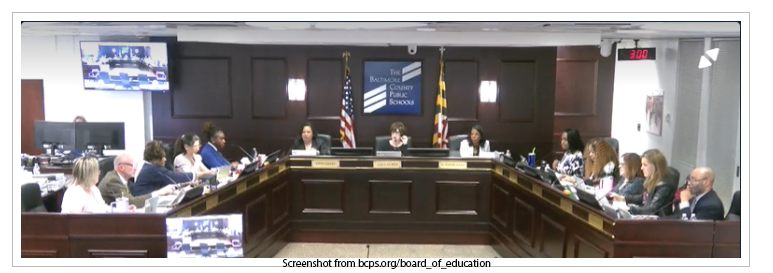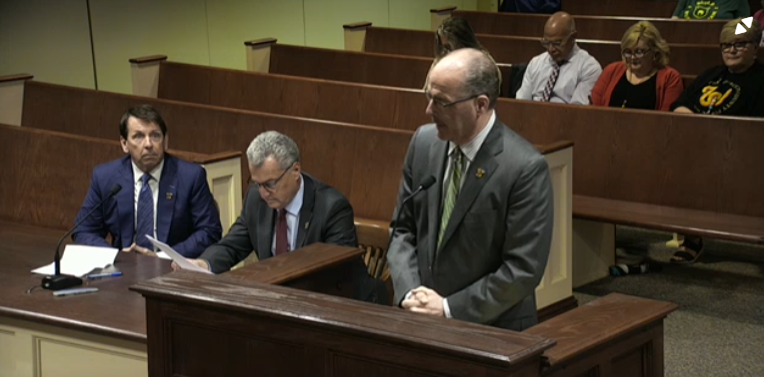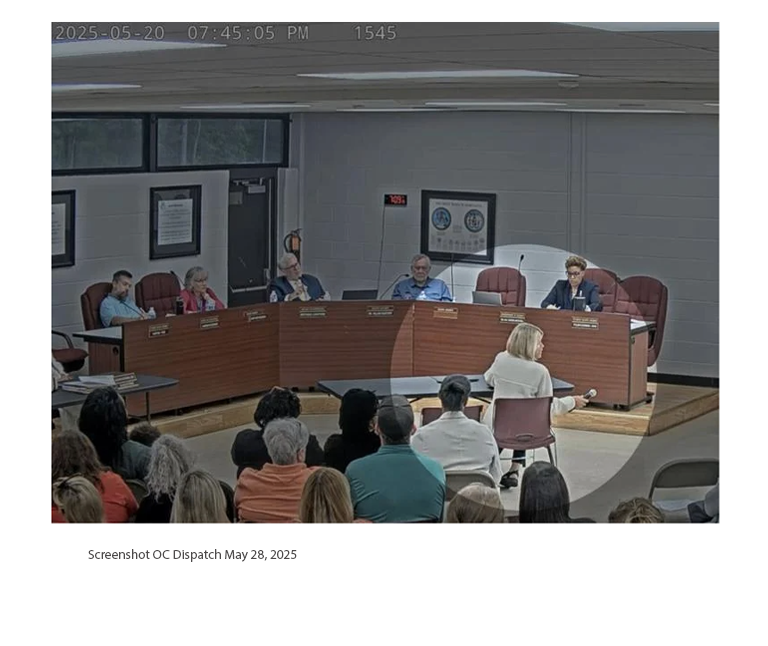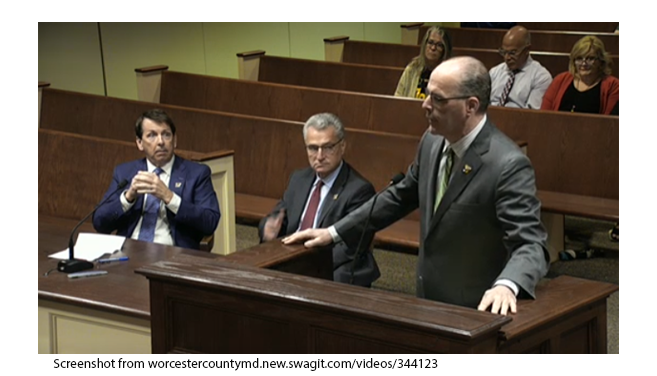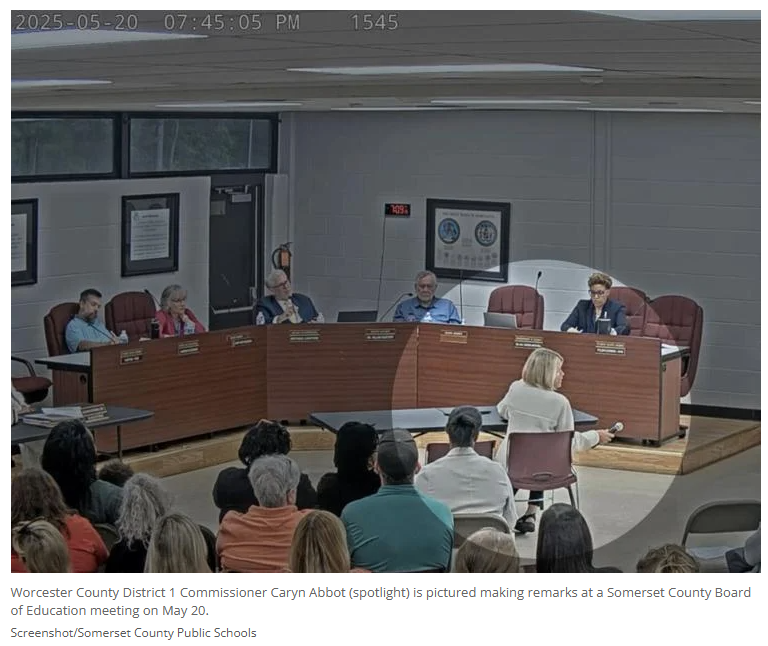
Autistic Isn’t a Bad Word: The Case for Rethinking Your Language (Opinion)
“He’s autistic,” I say, responding to a question about my 9-year-old son.
After shifting in her chair, a co-worker responds: “It must be hard to have a child on the spectrum.”
A version of this conversation has happened many times during the past year or two, as I’m trying to switch from person-first language to using the identity-first terminology recently preferred by many autistic adults.
As a veteran teacher, I’ve taught the Psychology of the Exceptional Child course for many years to teacher-candidates. I work every day in special education teaching middle and high schoolers with learning differences. I’ve also fostered and parented neurodivergent children. So, I’ve been the poster child for person-first language for the last 20 years— a linguistic approach that puts the person (“child”) before the disability (“autism”). This long-taught technique is the equivalent of saying, “John has autism like Sue has cancer.” In the past, I might argue, “We don’t say John is autistic just like we wouldn’t say Sue is cancerous.” It would be a classic argument.
But here is the problem: Cancer is bad. Who would argue with that premise? Cancer is a disease. It isn’t part of who you are, intrinsically. Autism is neither bad nor good. Instead, it is a neurodivergence—a way of communicating differently, of sensing things more or less than others, of having hyperfocused interests—not a disease that needs eradicating.
This shift in my language started a few months after I joined Autism Inclusivity, a Facebook group that as of April 3 is run by 16 autistic adults with 150,003 group members and growing. The group has several thousand autistic adults who help parents learn how to relate to their neurodivergent children. The group description states, “This is an Autistic-led group for parents and caregivers of Autistic children to ask questions. … As such this group respectfully centers upon Autistic voices. We seek to educate in this group so that current and future generations of Autistic children can be better understood and supported with their needs.”
The Autism Inclusivity group can be tough on neurotypicals at times but also provides invaluable insight because some members are the first generation who have grown up with a diagnosis and can say what language, teaching, and parenting style worked for them and which may have been harmful to their well-being or self-image.
I allow my students to be fully autistic without having to mask their neurodivergent characteristics in my classroom.
When asked by parents why autistic members self-identify as “autistic,” group members sometimes post a meme showing a person standing on a rainbow (on a spectrum), carrying a rainbow bag (has autism), and then being the rainbow (autistic). This was my aha moment—when it all started to make sense. They are not a puzzle to be figured out and prefer the infinity sign over the puzzle piece that is promoted by Autism Speaks, an advocacy group that is not run by autistics. Many autistic adults don’t want money raised to find a “cure”—because they already like who they are. Every condition has varying degrees of functionality—a spectrum.
During April—Autism Acceptance Month—I hope you take a moment to step back and listen to the youth and adults who are part of a movement to change the way we refer to them, using identity-first language, as the Autistic Self-Advocacy Network encourages. Just as the Deaf community doesn’t want to be called people with hearing impairments since they see the value of Deaf culture, so, too, do the autistics in the world have a right to a cultural voice. Some neurodiverent people prefer different terminology than what many educators are used to. We need to focus on empowering their neurodivergence instead of our comfort level as neurotypical educators taught best practices by neurotypical instructors. Maybe it isn’t best practice after all.
Perhaps the best way to do better is simple: Listen to other voices in the community and ask each person what they prefer to be called. That is putting the person first in real life, not just assuming their preference in language.
My son is 9. For now, he loves learning sports facts and geography. He can beat me on any trivia question about U.S. presidents or British monarchs, but I’m still better at math than he. (He had his times tables memorized by 5, so he’s going to catch me soon!) He’s a great writer and loves to play soccer. He enjoys hanging out with our cats, his sisters, and his Uncle Rob.
I often find him wearing colorful mismatched shoes—one tie-dye Croc and one slip-on shoe with superhero designs. He likes to keep his hair long and pants short—even in winter. He’d rather eat asparagus or broccoli than brush his teeth—even with bubble-gum-flavored toothpaste. And when I asked him if he had an opinion on autism language, he shrugged his shoulders and said, “I prefer to be called Jez,” the nickname we have called him since birth. I find value in that, in allowing my 3rd grader the space to be uniquely himself just as I allow my students to be fully autistic without having to mask their neurodivergent characteristics in my classroom.
With 1 in 36 children now diagnosed with autism spectrum disorders, most of my fellow teachers will spend some of their careers teaching autistic students. Consider listening harder to the neurodivergent voices in the room and try saying “autistic,” instead. If it makes a fellow educator squirm, explain why you changed to identity-first language. We all have an obligation to listen to the voices different from our own and to be advocates for the students we teach.
How to Submit
Education Week Opinion welcomes submissions from a range of perspectives within the K-12 education community. Regardless of your role in education, we want to hear from you.
Dig Deeper With Our Longreads
Newsletter Sign up to get our best longform features, investigations, and thought-provoking essays, in your inbox every Sunday.
The MEN was founded by John Huber in the fall of 2020. It was founded to provide a platform for expert opinion and commentary on current issues that directly or indirectly affect education. All opinions are valued and accepted providing they are expressed in a professional manner. The Maryland Education Network consists of Blogs, Videos, and other interaction among the K-12 community.


